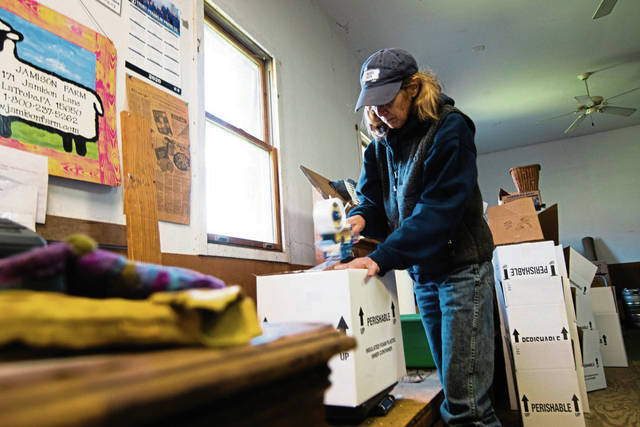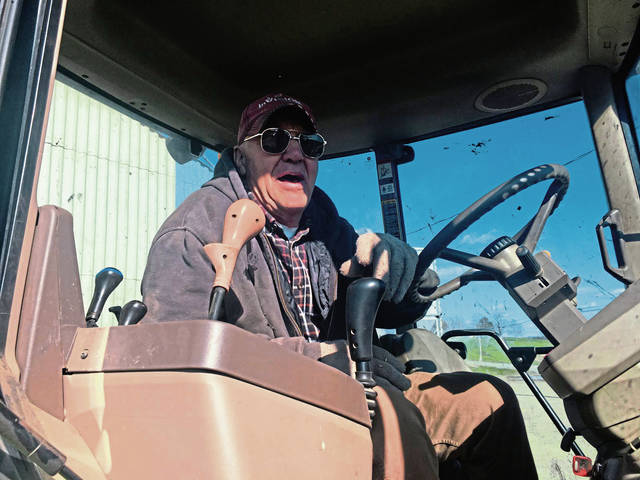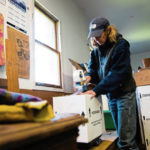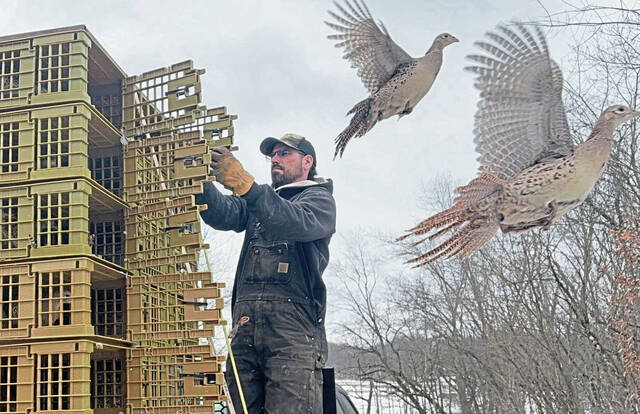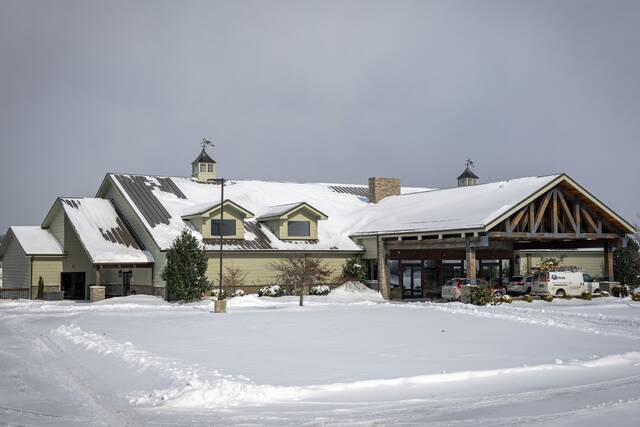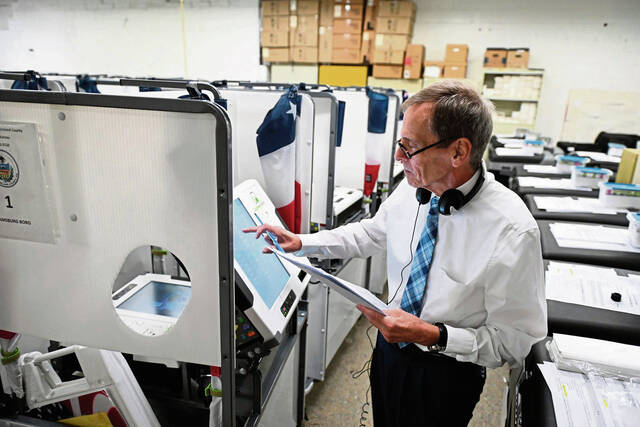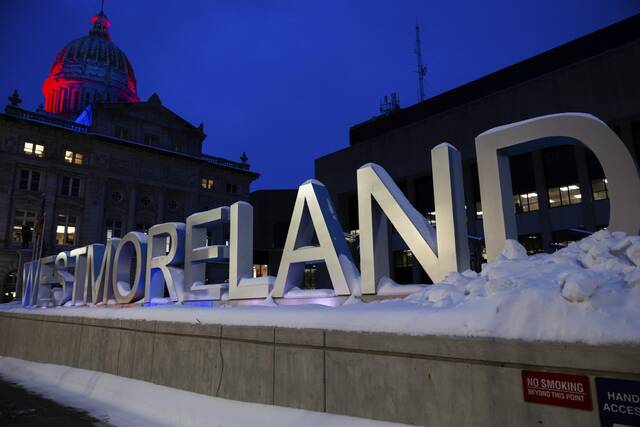While the state’s food supply remains safe and secure, the closing of nonessential businesses to prevent the spread of the coronavirus has squeezed farmers.
They say they have seen commodity prices drop and their markets close. A growing glut at dairy processing plants has forced some farmers to dump their milk, state officials and area farmers said.
Pennsylvania’s agriculture industry — which annually contributes more than $135 billion, or nearly a fifth of the state’s economy — is supplying a sufficient amount of food for consumers, although some temporary shortages have cropped up in meat and eggs.
That’s mostly the result of processors being challenged to package more products for supermarket sales rather than selling them in bulk to restaurants and other institutions, state Agriculture Secretary Russell Redding said.
“We don’t see it getting worse,” Redding said. “We feel that in total volume, we have enough (food supply). The challenge in the short run is to retool … for household sales.”
The need for processors to package items for individual sale “has not been an easy transition,” Redding said. It comes at a time when supermarkets and food banks across the state “are clamoring for the same items” — milk, eggs and meat.
While distribution challenges remain to be resolved, Redding offered a bit of advice to grocery store shoppers: “Don’t buy a huge amount of food. It makes it hard for your neighbors.”
In an attempt to alleviate any fears over buying food, the U.S. Food and Drug Administration says there is no evidence that coronavirus is transmitted on food packaging, said Jeff Warner, director of Pennsylvania’s Bureau of Food Safety.
The shutdown of restaurants and schools have hurt the dairy processing industry, Redding said. With schools not buying milk and restaurants buying far less cheese, some dairy processing plants have all the milk they can handle. That has resulted in some dairy farmers dumping their milk during this time of crisis.
“We really need a national response to the dairy crisis,” Redding said.
Steve Turner, marketing director for the family-owned Turner Dairy in Penn Hills, said his business has been able to adjust to the loss of milk sales to schools.
“There is going to be huge concern where the milk is going to go,” said Rick Ebert, a Derry Township dairy farmer who milks 70 cows. He also is president of the Pennsylvania Farm Bureau.
Gallons and half-gallons of milk are being sold in much higher volumes at grocery stores because people are drinking more milk at home, but dairy processing plants that produce cheese and other products cannot store and process the increased supply of milk they are receiving, said Shannon Powers, a state Agriculture Department spokeswoman. Even milk exports that account for some of the sales, have dropped at a time when milk production is normally up in the spring, Powers said.
Ebert said he has heard of dairy farmers in Somerset County dumping their milk, but not in Westmoreland County, and Powers acknowledged that some farmers in the state are dumping their milk.
The U.S. Department of Agriculture has indicated that farmers may be compensated for losses, but details have yet to be ironed out.
“This is frustrating for the farmers,” said Emily Barge, a spokeswoman for the Harrisburg-based Center for Dairy Excellence.
The primary cause of the problem is the disruption of the shutdowns of schools and dining at restaurants, where more than 50% of Americans consume their meals, Barge said.
“Even though milk sales are up (at the supermarkets), it isn’t enough to compensate for the drastic decline of milk products (such as cheese and butter) sold at service establishments,” she said. “It is causing an imbalance of supply and demand.”
For Jamison Farm near Crabtree, the shutdown has slammed their business of selling prized, grass-fed lamb to top-end restaurants across the nation.
When restaurants were ordered in mid-March to sell takeout only, “we lost 60% of our business,” said John Jamison, who runs the farm with his wife, Sukey. Three weeks ago, restaurant sales “went to nothing,” he said.
The Jamisons, who have been in business since 1985, now focus on online retail sales, shipping frozen lamb products across the country. The business is getting a boost now from customers buying lamb for Easter, said Sukey Jamison, as she packaged a box of lamb products at their 210-acre farm in Unity.
They reacted to the drop in sales by no longer processing meat at their plant in Bradenville, Derry Township, she said. They also had to lay off two full-time employees and one part-time worker.
“You hate to do it,” Jamison said.
The coronavirus has halted the sale of cattle at Alquin Heinnickel’s farm in Salem. The meat processing plant it uses reduced production after some workers tested positive for covid-19.
Heinnickel, who raises 1,000 head of cattle on his family’s farm in Hempfield, said the problem at the Montgomery County meat packing plant means he has not been able to sell his cattle. The plant will be down for at least two weeks.
The price of feeder cattle futures fell by $4.50 per hundredweight for two consecutive days, the daily limit for price changes by CME Group, a global marketing firm.
Heinnickel, 73, whose family has farmed since his great-grandfather returned from the Civil War, said the next closest processing plant is in the state of Indiana. He isn’t interested in shipping his cattle there.
“It costs $1,000 to ship the cattle across the state (to Souderton),” he said. “It would cost $2,500 to ship them to Indiana.”


